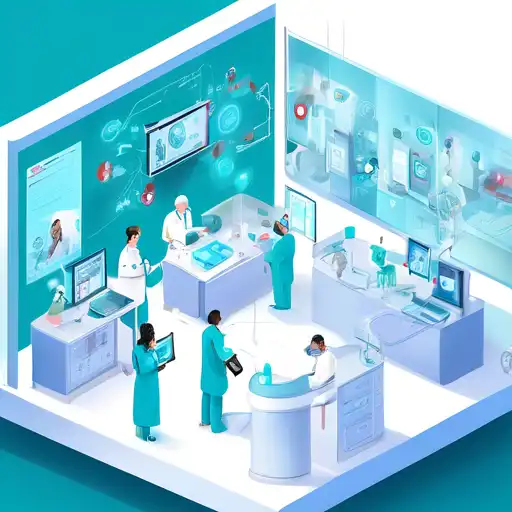Introduction to IoT in Healthcare
The Internet of Things (IoT) is revolutionizing various sectors, and healthcare is no exception. By integrating IoT devices and technologies, healthcare services are becoming more efficient, personalized, and accessible. This article explores the transformative impact of IoT on healthcare services, highlighting key innovations and benefits.
Key IoT Innovations in Healthcare
IoT in healthcare encompasses a wide range of applications, from wearable devices to advanced monitoring systems. Here are some of the most impactful innovations:
- Wearable Health Monitors: Devices like smartwatches and fitness bands track vital signs in real-time, enabling proactive health management.
- Remote Patient Monitoring: IoT devices allow healthcare providers to monitor patients' health remotely, reducing hospital visits and readmissions.
- Smart Pills: These ingestible sensors transmit data about medication adherence and bodily responses, improving treatment outcomes.
- IoT-enabled Hospital Equipment: From smart beds to connected imaging devices, IoT is optimizing hospital operations and patient care.
Benefits of IoT in Healthcare
The integration of IoT technologies in healthcare offers numerous benefits, including:
- Enhanced Patient Care: Real-time data collection and analysis enable personalized and timely interventions.
- Improved Efficiency: Automation and connectivity reduce manual tasks, allowing healthcare professionals to focus on patient care.
- Cost Reduction: Remote monitoring and predictive maintenance lower healthcare costs for providers and patients alike.
- Better Health Outcomes: Continuous monitoring and early detection of health issues lead to improved patient outcomes.
Challenges and Considerations
Despite its benefits, the adoption of IoT in healthcare faces several challenges, such as data security concerns, interoperability issues, and the need for robust infrastructure. Addressing these challenges is crucial for maximizing the potential of IoT in healthcare.
Future Prospects
The future of IoT in healthcare is promising, with advancements in AI, machine learning, and 5G technology expected to further enhance IoT applications. As these technologies evolve, we can anticipate even greater improvements in healthcare services and patient outcomes.
For more insights into how technology is transforming healthcare, explore our articles on Digital Transformation in Healthcare and The Role of AI in Medicine.
Conclusion
IoT is undeniably transforming healthcare services, offering innovative solutions to longstanding challenges. By embracing IoT, healthcare providers can deliver more efficient, personalized, and accessible care, ultimately improving health outcomes for patients worldwide. The journey of IoT in healthcare is just beginning, and its full potential is yet to be realized.
